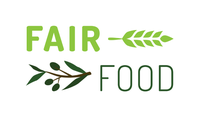FairFood
 1
/
1
1
/
1

FairFood for a Smart Life contributes to improving health through nutritional education inspired by the way our ancestors used to eat, with natural, locally sourced products, treated simply and consumed in season, while contributing to preserving Europe's culinary cultural heritage and slowing down climate change.
Categoría: Proyectos Inactivos Erasmus
|
|
PROJECT DETAILS |
Key Action |
KA2 |
Field |
Strategic Partnerships |
Reference |
2020-1-ES01-KA202-082178 |
Project duration |
24 months |
Start date |
01/11/2020 |
End date |
31/10/2022 |
Web |
|
Coordinating Institution |
Universidad de Málaga, Spain |
Partner Institutions |
Internet Web Solutions, Spain Universidade de Aveiro, Portugal IDP European Consultants, Italy Institut de Haute Formation aux Politiques Communautaires, Belgium |
Project description |
The aim of the FairFood for a Smart Life project is to contribute to the improvement of health through nutritional education inspired by the way our ancestors ate, with natural, locally sourced products, simply prepared and consumed in season, while contributing to preserving Europe's culinary cultural heritage and slowing down climate change. Europe's rich gastronomic culture includes the Mediterranean diet, an intangible heritage of humanity. The dissemination of these guidelines is beneficial for the whole population as well as for the environment. The consortium of this project is made up of 6 partners from 4 countries (Spain, Italy, Portugal and Belgium), including the leading exponents of the Mediterranean diet, and brings together universities, experts from the agri-food sector, consultants and educators to achieve a triple objective:
|
Coordinating Professor UMA |
|






